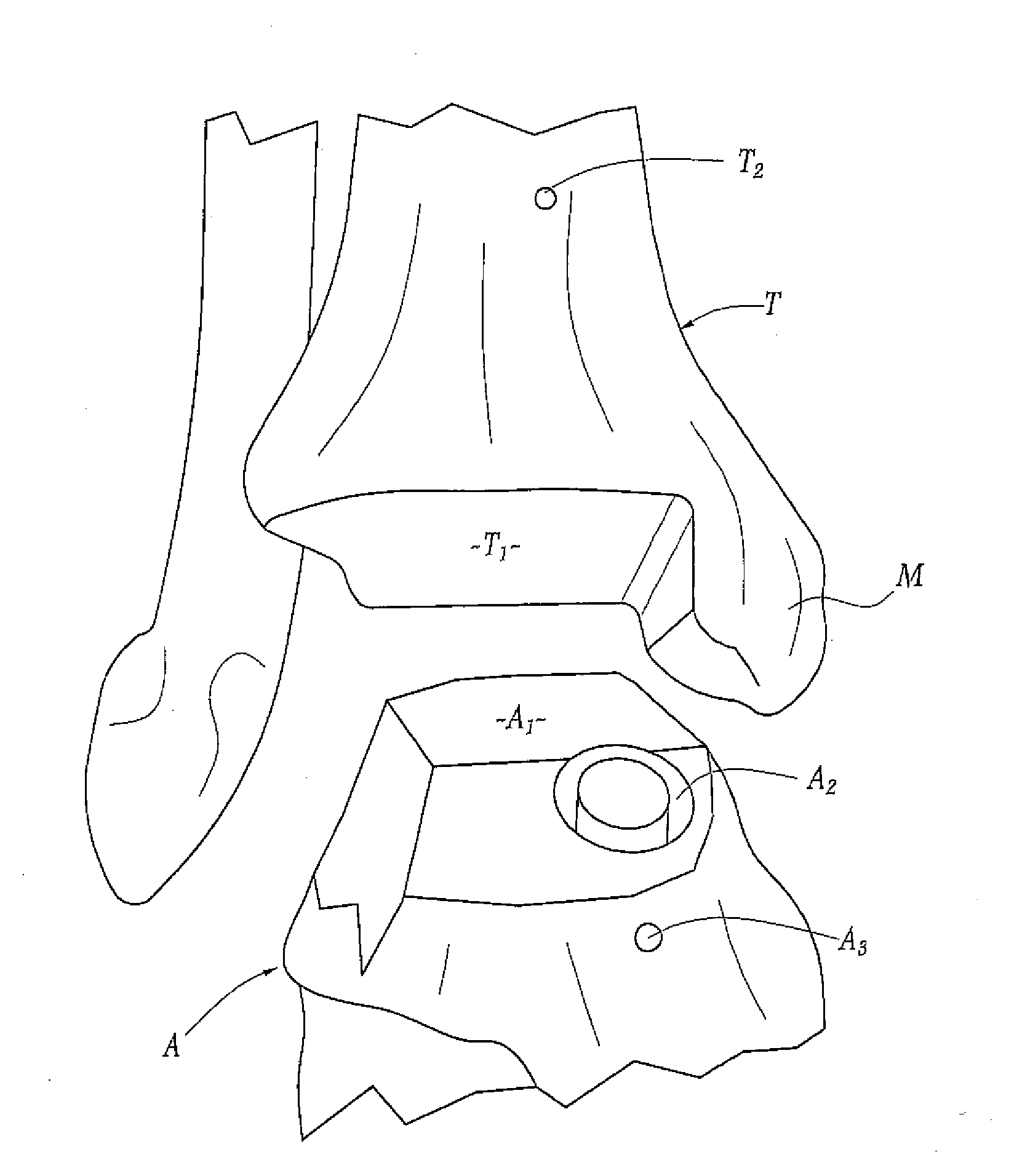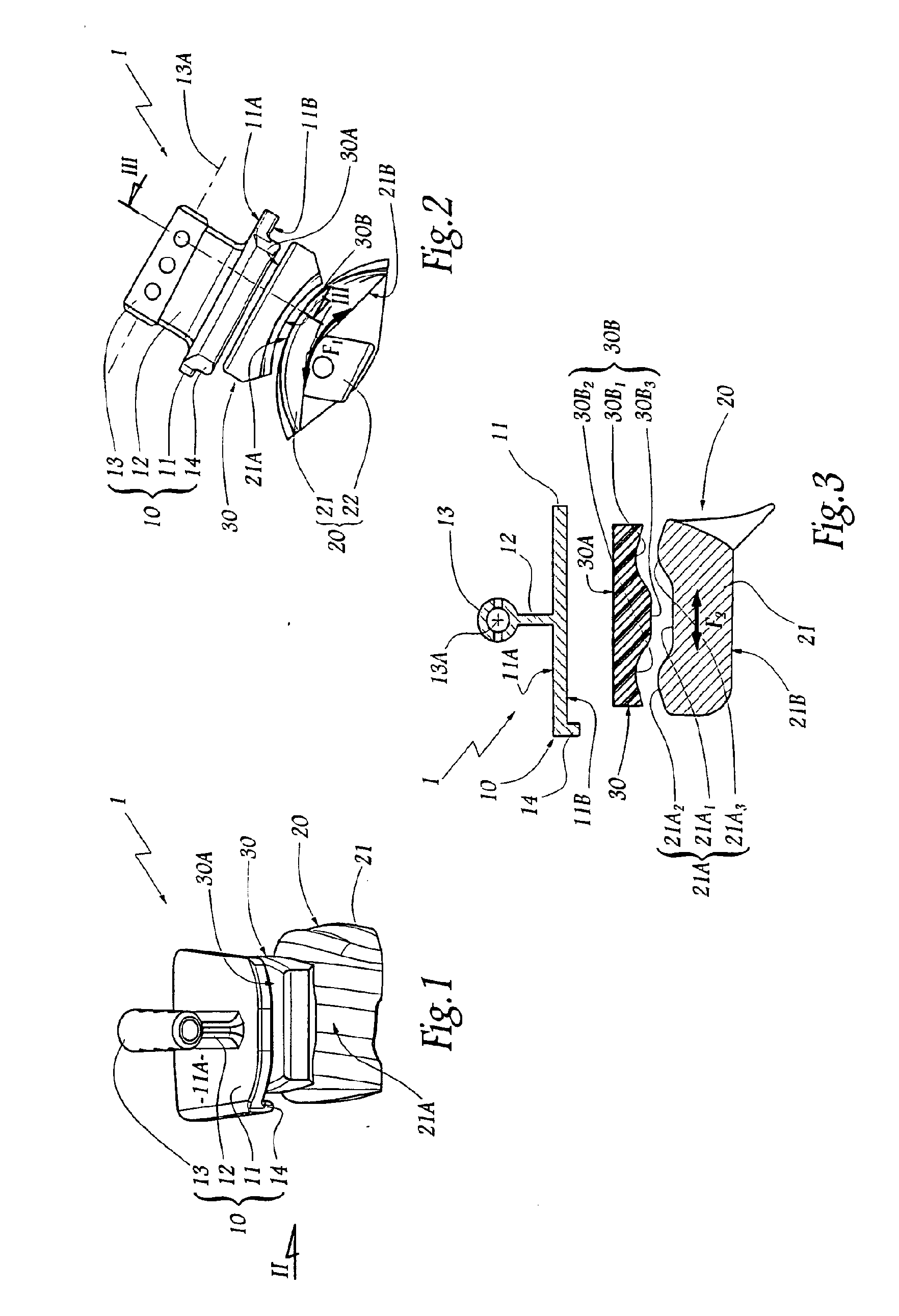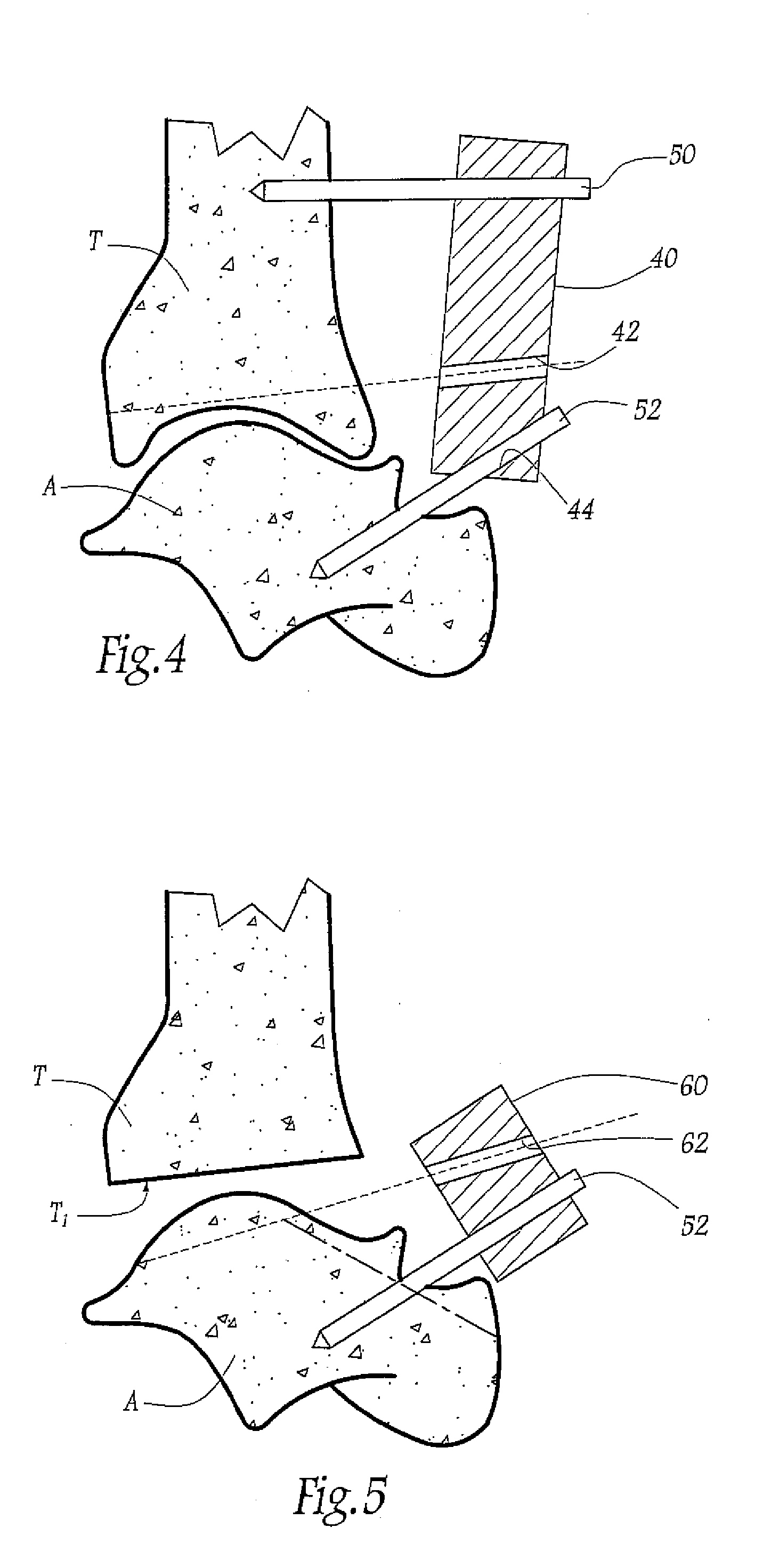Surgical instrumentation kit for inserting an ankle prosthesis
a technology for insertion of instruments and ankle prostheses, which is applied in the field of surgical instruments for inserting ankle prostheses, can solve the problems of relatively short term damage to the end of the tibial bone, unsatisfactory implantation of ankle prostheses, and damage to the stationary connection zone between the implant and the skid, so as to avoid any disturbance to the relative
- Summary
- Abstract
- Description
- Claims
- Application Information
AI Technical Summary
Benefits of technology
Problems solved by technology
Method used
Image
Examples
Embodiment Construction
[0041]FIGS. 1 to 3 show an example of a “moving skid” ankle prosthesis. The prosthesis comprises three distinct components for implanting in the place of a right ankle joint of a human being, namely a tibial implant 10, a talus implant 20, and a prosthetic skid 30. For convenience, the description below describes directions relative to the bones of an ankle in their anatomical position, i.e. the terms “posterior” or “rear”, “anterior” or “front”, “right”, “left”, “upper”, “lower”, etc. should be understood relative to the ankle of a patient standing on a substantially horizontal surface. Similarly, the term “sagittal” corresponds to a direction in the antero-posterior direction vertically on the mid-line of the ankle, while the term “medial” corresponds to a direction substantially perpendicular to the sagittal plane of the ankle, and directed towards the ankle, with the term “lateral” corresponding to the opposite direction.
[0042]The tibial implant 10 comprises a plate 11 for secur...
PUM
 Login to View More
Login to View More Abstract
Description
Claims
Application Information
 Login to View More
Login to View More - R&D
- Intellectual Property
- Life Sciences
- Materials
- Tech Scout
- Unparalleled Data Quality
- Higher Quality Content
- 60% Fewer Hallucinations
Browse by: Latest US Patents, China's latest patents, Technical Efficacy Thesaurus, Application Domain, Technology Topic, Popular Technical Reports.
© 2025 PatSnap. All rights reserved.Legal|Privacy policy|Modern Slavery Act Transparency Statement|Sitemap|About US| Contact US: help@patsnap.com



